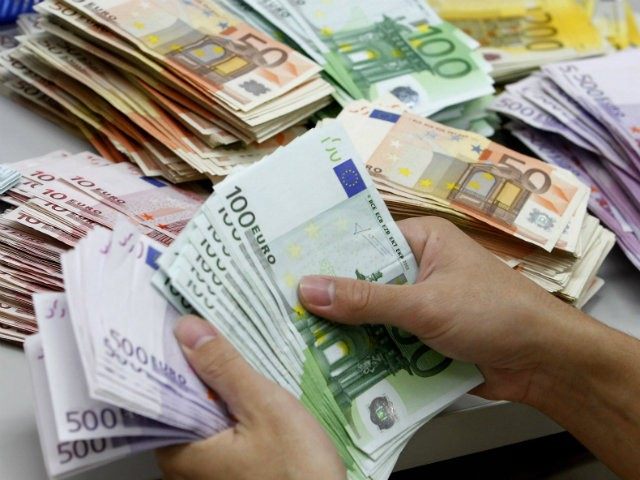Today is the final day Lithuania will use the litas as its national currency before sacrificing monetary policy independence to Brussels and the European Central Bank in Frankfurt.
People have been queuing at banks across the country to swap old litas for new Euro notes and coins, euronews reports.
Despite the problems the German-dominated currency has caused, including sky-high unemployment, poverty, riots in Europe’s capital cities and even suicide in Greece as businesses failed and people felt hopeless, all countries that joined the European Union from 2004 signed a binding agreement to join the Euro.
Lithuania will be the 19th country to join the political and economic project.
Since 2005 Lithuania has seen its Per Capita GNI rise from $14,440 to $24,500 although that is coupled with a significant drop in population following the doors opening to richer Western Europe. But it is also indicative of a country that embraced free markets once it had thrown off communism, embracing a flat tax policy which libertarians in the UK can only dream of now even UKIP has abandoned that idea.
The former Soviet republic was the first country to break away from the central planning system in the late 1980s and in 1990 broke away from the USSR completely and embraced capitalism. It implemented liberal reforms and became one of the fastest growing countries in the world over the last decade with GDP growth rates positive for nine years in a row until the global economic collapse in 2009.
But it was actually the last country to be hit by the economic crisis because its GDP growth rate in 2008 was positive while countries in Southern Europe, who had been a part of the single currency, have seen their growth rates become negative figures. Greece in particular saw an astonishing downward trajectory since 2006, falling to -7.1 percent in 2011 as other countries were making their recovery.
In contrast, the rebound in Lithuania’s economy in the third quarter was the fastest in the EU whereas the overall growth figures for the eurozone countries have only poked their nose into positive growth as a whole, peaking at 0.3 percent.
Yet despite the evidence of the unviability of a single currency for so many diverse countries including many who did not meet the convergence criteria (in actual terms, only Luxembourg did), government officials have praised the benefits of the single currency.
The Prime Minister Algirdas Butkevicius said the transition from monetary independence to the common currency was one of the main achievements of his centre-left governing party in the last two years: Lithuania was due to join the EMU in 2007 but inflationary figures were too high and the low interest rates set by the ECB, mainly to meet the needs of the German economic powerhouse, would have only added to those difficulties.
“I think we have done it responsibly as I do not know any other country where public trust in the euro has reached 63 percent”, Mr Butkevicius said. “It makes me feel positive and I look forward to exiting the mechanism by which litas was pegged to the euro.”
The country’s Finance Minister Rimantas Sadzius highlighted the boost to investment that lower borrowing costs could provide.
“It is cheaper credits, cheaper investment as risk of currency devaluation is eliminated and, in general, it is more of the cheaper money”, he said.
But UKIP leader Nigel Farage said that politicians should not be so confident in their predictions:
“This would be true if the euro was a success” he said, referring to Sadzius’s comments. “But given the mess the Euro is in, Lithuania’s decision to join the single currency is like boarding the Titanic after it’s hit the iceberg whilst the passengers are looking for the lifeboats.”

COMMENTS
Please let us know if you're having issues with commenting.